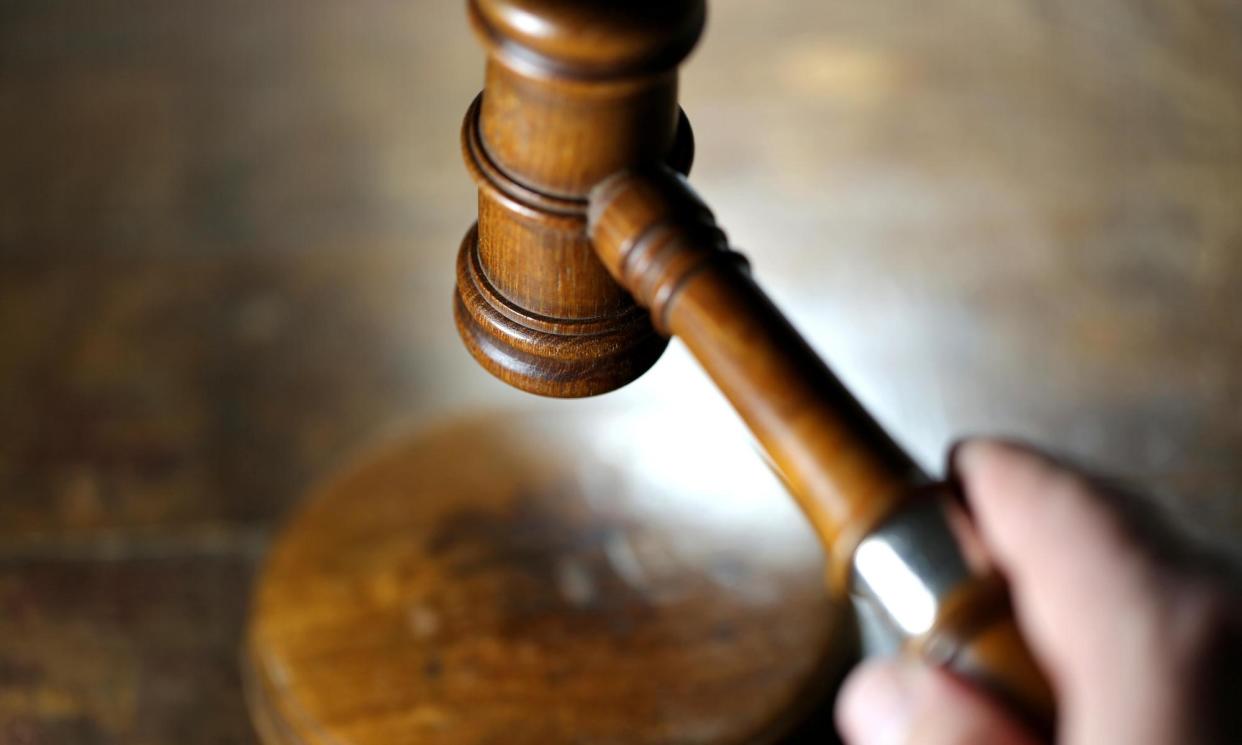Man who sent bomb threat to Arizona election officials jailed for 42 months

A Massachusetts man who threatened to blow up the secretary of state of Arizona in 2021 has been sentenced to three and a half years in prison, one of the most severe federal punishments yet handed down for the wave of violent threats against election officials unleashed by Donald Trump’s stolen election lie.
James Clark, 38, was sentenced in federal district court in Phoenix on Tuesday to 42 months of imprisonment, to be followed by three years on probation. Judge Michael Liburdi said that his online bomb threat had inflicted “emotional and psychological trauma” on government employees and required a deterrent sentence to protect democracy.
Related: Arizona Republican who resisted pro-Trump pressure in 2020 to stand down
Liburdi remarked that there had been so many recent threats in Arizona against election officials that people were quitting their jobs. “If we do not have good people to fill these positions who are committed to the delivery of fair elections, we lose our ability to govern ourselves,” the judge said.
The prosecution was handled under the auspices of the election threats task force, a specialist unit within the justice department. The task force was set up in 2021 in response to the plague of intimidation of election officials that has erupted since the former president made his baseless claim that the 2020 presidential election was rigged.
Tuesday’s sentence of three and a half years in prison is on a par with the previous harshest sentence secured by the task force. In August, Francis Goetz from Texas was given a similar punishment for posting several threats against Arizona election officials on far-right social media platforms.
Clark made his bomb threat a week after the January 6 attack on the US Capitol. In his plea agreement he admitted to logging into the website of the then secretary of state, Katie Hobbs, who is now Arizona’s governor.
He demanded that she resign within two days or an “explosive device impacted in her personal space will be detonated”. Within minutes of sending the threat, Clark searched online for Hobbs’s home address and put her name against the search term “how to kill”.
Four days after the bomb threat, he searched for details of the 2013 Boston marathon bombing.
After Clark’s bomb threat was discovered, two floors of the Arizona government building were evacuated and the then Republican governor Doug Ducey was forced to shelter in place. Security sweeps were conducted of Hobbs’s home and car.
Before the sentence was handed down, a statement from the current Arizona secretary of state, Adrian Fontes, was read out to court. He said that the bomb threat had made employees in his office suffer fear and anxiety.
“It makes each of us feel vulnerable, and that trauma does not abate over time. This type of threat is anti-American and a threat to democracy,” Fontes said.
Tanya Senanayake, a trial attorney with the public integrity section of the justice department who prosecuted the case, had pressed for an even longer prison sentence of almost five years. She said that a deterrent punishment was needed to protect public officials from “a growing trend of threats to their lives and to the safety of their families”.
Defense attorney Jeanette Alvarado emphasized that Clark was in the throes of alcohol and drug abuse at the time he committed the offense. He was now in recovery and has been clean and sober for three years, she said.
Clark himself addressed the judge and said that when he made the bomb threat “I was not the person I wanted to be … I am deeply, deeply ashamed.”
Since Trump became the first president in US history to refuse to cede power, election administrators and their families have come under a barrage of verbal and online attacks. A study by the Brennan Center last year found that almost one in three election officials had been threatened or abused, and almost half were concerned about the safety of their colleagues and staff.
Arizona has borne the brunt of much of the wave of harassment. In two separate incidents last month, the FBI arrested individuals in Alabama and California alleged to have made violent threats against election officials in Maricopa county, the largest constituency in Arizona that covers Phoenix.
On 25 March, a further federal sentencing hearing will be held in Phoenix in the case of Joshua Russell, 44, of Bucyrus, Ohio. Russell pled guilty to having left three threatening voicemails in August 2022 targeting an unnamed election official in the Arizona secretary of state’s office.
The messages accused the victim of perpetrating election fraud and said: “America’s coming for you, and you will pay with your life, you communist fucking traitor bitch.”
The US attorney general Merrick Garland has made combating threats against election officials a priority for the justice department. In a speech in January he said: “These threats of violence are unacceptable. They threaten the fabric of our democracy.”


